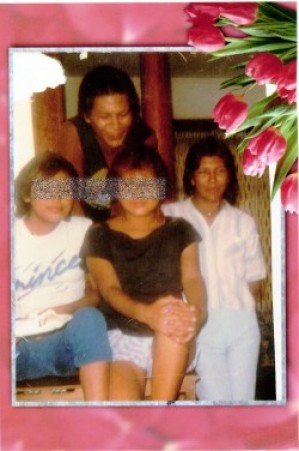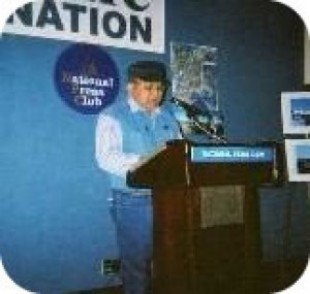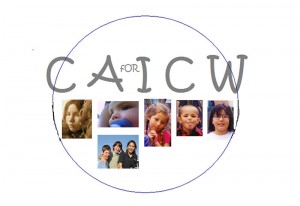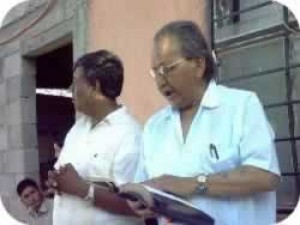A friend wrote:
“Lisa you can and are free. Free to go on, free to thank God for your life with Roland…free to learn from the craziness and free to take what you can and to leave the rest in God’s hands.”
How beautiful, wonderful, comforting those words are.
But it was worse than just craziness. It had been horrific. Over twenty years earlier, I stepped into the closet where Michelle, who was taller then I, had hanged herself that morning. The wooden rod from which clothing hung just touched the top of my head. She could have saved herself simply by standing up. How could she have hated herself that much? How could anyone hate themselves that much? How deep her despair must have been! Oh, why didn’t any of us realize the extent of her suffering? That beautiful girl! Why didn’t we visit her? Why didn’t I just come and talk to her, be her friend, take her to get her driver’s license as I had promised her? Something?
That very same evening, we got a call from a detective in the emergency room at the medical center. Owen had been stabbed in the chest.
“Oh, No,” I said to the detective. “His sister Michelle just died!”
“Michelle died?” The detective asked, “Do we know how Michelle died?”
“Oh, yes. She was upset about their sister Brenda’s accident and she hanged herself”.
“Brenda?” He asked hesitantly, “And do we know what happened to Brenda?”
“Yes, she fell down a flight of stairs in a wheelchair and reinjured her back”.
The detective paused.
“Do we know how Brenda fell down the stairs?”
“Yes. She was upset that Michelle hadn’t wanted to help her down the stairs. So she threw herself down.”
At this point the detective must have been wondering if there were some kind of conspiracy against the family. I think, in some backward way, many of us hoped there was. It was too much to imagine that all this could happen to one family in one week’s time. Worse – that they had all done it to themselves. It would have been a morbid comfort to have some other explanation.
And this was just one of many “Days of out lives.”
But after some thought, I respond to my friend: “You are right – the memories pain me, but even so, I do thank God for my life with Roland. He actually asked me before he died how I felt about our life together. And I actually had an answer ready—because I’d been thinking about it for awhile.
I told him that we had traveled from the Atlantic to the Pacific. We’ve lived in Canada and helped out at a Children’s home in Mexico. We’ve owned businesses and we’ve been on welfare. At times we had little or no food – and other times we ate at some of the finest restaurants. We have slept on dirty floors with dirty blankets in tribal housing, and we have stayed in upscale hotels on Capitol Hill in Washington DC and in Windsor, BC. I told him our life had been full. He seemed to relax into his pillow upon hearing me say it.
We felt just as comfortable talking to a drunk on Franklin Ave. as we did talking to a US Senator. I’ve called a US Senator looking for my husband, who was in his office at the time. The Senator made a real joke of it, as he handed Roland the phone, about how I can track him down anywhere. And…I’ve had an impossible time finding my husband on the reservation just after our son was born. No one would hand the phone to him then, as they were drinking with him.
A law professor and a state legislator both helped carry Roland’s casket. A retired US Navy Submarine officer carried Roland’s body back to the reservation in the back of his pickup.
Who would I have been without all those experiences?
It’s the truth, isn’t it? Who would I have been if I had married an average man and lived with two cars and 2.5 kids in the suburbs? Really – would I even be a Christian right now? Because it was Roland that essentially led me to Christ.
And …as I correspond with the various families that write to CAICW…how would I even begin to understand them and their fears if I hadn’t been there myself? I am able to write two simple words that mean the world to them… “I understand.”
And it is with that background: the birth mother to five members, the adoptive mother of one, the legal custodian of three, the step mother to four, and aunt to innumerable members of the Minnesota Chippewa Tribe – and as a former licensed Day care provider, foster care provider, as well as registered nurse – I am able to ‘withstand the barbs of the enemy’ and stand tall whenever anyone tries to call me a racist for speaking up on this issue.
I can unashamedly stand up and say what many others can’t bring themselves to say – because I don’t care what names they call me. And I can speak loudly. And I can help that no more children be treated as chattel for the benefit of a corrupt tribal government.
The idea some have that children “belong” on the reservation is racism at its core. It ignores who the child might factually be, who the child is connected to, what the child really wants and, importantly, what the child’s best interests are. It’s well known to everyone that the high school drop out rate, drug abuse, crime, fetal alcohol rate, child abuse, corruption, child neglect, sexual abuse, violence and suicide, etc. is so high on many reservations that no Congressman would ever willingly send their own child to live there…yet everyone is supposed to just go along with the lie that children of heritage must live with it because tribal and federal government say so. It’s not only insane but criminal.
I’m not going to diplomatically dance around so as not to step on toes. Kids are dying. Beautiful Michelle hanged herself in a simple closet, where all she had to do was stand up to save herself.
Others have died of overdose, accident, and violence.
So you are right. I have a job to do, and it is because of my life with Roland that I am able to do it.
– to be the loud-mouthed, angry witch that I am.
Bless you My Friends, you’ve been so good to hang in there with us through all these tough years.
Read “Dying in Indian Country”
Letters from Families, asking for Help – Christian Alliance for Indian Child Welfare










